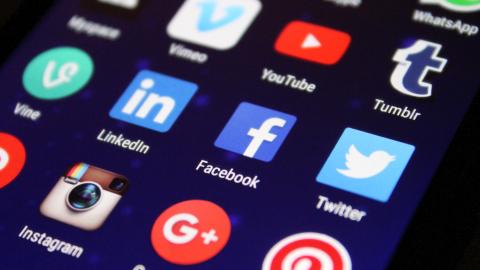Comedian Bill Maher recently coined the phrase “zombie lie.” It refers to a popular idea or concept that, despite being easily debunked, just won’t die.
If you look around your daily life, they’re not hard to find. Only 10% of the human brain is ever used. Saltwater boils quicker than regular water. Toilets flush the opposite way in Australia. Shouting “fire” in a crowded movie theater is illegal. So “they” say.
None of these claims are true. But because they’re repeated over, and over, and over again, they live on.
In the world of tech and telecom policy, one zombie lie reigns supreme: the supposed need for “net neutrality.”
Net neutrality is a concept that’s existed in one form or another for nearly twenty years. Its proponents claim that America’s Internet service providers and their customers are forever at war with one another. In the words of former FCC Chair Tom Wheeler, American ISPs allegedly have “both the economic incentive and technological capability” to degrade their subscribers’ service or limit access to certain online content.
Why? One theory posited by regulatory proponents is that ISPs might want to promote their own video or telephone service over Internet-based competition. Alternatively, ISPs might want to act as “gatekeepers” and promote the services of those who have paid a “toll” to their ISP, over their competition. So net neutrality defenders claim.
Of course, anyone who’s used the Internet over the last two decades knows that hasn’t happened. And it’s not hard to figure out why.
For one, competition among Internet providers is fiercer now than ever before. Home internet adoption effectively peaked around 2017. At the time, even on LTE, millions of Americans found mobile Internet alone to be a sufficient, less expensive substitute for subscribing to both home and mobile broadband. Thanks to new and improved 5G networks, many Americans enjoy even more intense competition between wireless and residential providers—whether that wireless service is for a mobile phone or for a fixed home device that squarelycompetes with traditional cable or DSL broadband options. This competition isn’t just theoretical. If you’ve watched any TV ads lately—particularly duringsporting events—these companies are clearly aware that they’re competing.
Additionally, there’s no evidence of ISPs meddling with their subscribers’ access to content. To the contrary, even during a global pandemic when many Americans were forced to work from home—when ISPs arguably had their greatest potential leverage over their customers—ISPs didn’t harm anyone. Instead, it was Europe—with its heavily-regulated Internet sector—where services like YouTube and Netflix were degraded at the behest of government in order to keep their Internet networks afloat. American Internet customers, meanwhile, emerged from the pandemic continuing to enjoy their shows at full 4K quality.
As for throttling access to, say, Netflix or Zoom to unfairly prop up a cable company’s own video or telephone services? That hasn’t happened either. Instead, the video marketplace has become only more competitive in recent years. Netflix, Hulu, HBO, and traditional cable TV compete today with the likes of Apple, Disney, Amazon, and countless other market entrants. Comcast in particular—a company that sells cable Internet and TV service, as well as makes movies and TV shows—decided to compete with streamers by creating Peacock, rather than degrade or limit access to MVPD competitors. The result? Streaming video viewership today outnumbers cable and antenna TV. As for phone service—Zoom, Teams, Webex, FaceTime, and the like dominate communications both at home and in the workplace today. They’ve hardly been smothered by cable companies’ bundled VoIP offerings.
Gatekeepers limiting Internet users’ access to online content have indeed emerged since the advent of net neutrality rules. But they’re not Internet providers; they’re companies like Google, Facebook, Twitter prior to Musk, and the countless other online actors who have muzzled disfavored political speech under the guise of “misinformation” or other rationales—even when the content of such speech was ultimatelyproventrue.
Net neutrality proponents claim that only their proposed regulations can save the Internet from harm. But precisely the opposite is true. Only during the age of Obama-era net neutrality rules, in 2015 and 2016, did American Internet suffer. Those years marked the first time in American history outside of an economic recession that ISPs decreased investment in their networks. More recently, California’s state-level net neutrality rules limited veterans’ access to telemedicine on their phones that they previously were able to access freely and without limits.
Sadly, the FCC hasn’t learned from Europe or California’s examples. Instead, at the behest of political activists and lawmakers on Capitol Hill, FCC Chair Rosenworcel made her intent clear to keep telecom policy’s zombie lie alive for just a little while longer. Astonishingly, among the reasons cited in favor of re-instating net neutrality rules was the importance of Internet access during the COVID pandemic—a time when America’s Internet exceptionalism was at its apex.
Like Sisyphus and his boulder, arguments over net neutrality have persisted for nearly two decades. Despite the apoplectic prophecies of regulations’ proponents, the Internet isn’t destroyed. It’s not loading one word at a time. A “final pillow” hasn’t been applied to its “dying” face.
To the contrary—in the words of one former FCC commissioner, the Internet has proven itself to be the greatest free market success story of all time. Speeds are up, latency is down, and competition among providers is more ferocious than ever before. Americans today have access to all of the entertainment, education, and communication they could ever dream of, all at the click of a mouse or a tap on their smartphone. But that could all be in jeopardy if net neutrality proponents have their way.
Fortunately, this issue might finally reach the Supreme Court. And according to two former Obama solicitor generals, net neutrality rules, if enacted, likely wouldn’t survive review.
That’s because the Supreme Court has recently reinvigorated the “major questions” doctrine, which states that if a regulation involves an issue of major economic or political importance, Congress must have clearly delegated that authority in order for it to withstand legal scrutiny. In the case of the FCC and Title II, the legal mechanism it seeks to reimpose net neutrality rules, Congress clearly didn’t intend for a law written in 1934 to grant the FCC authority to regulate the Internet. At least one justice is already on the record as saying so. Moreover, the FCC’s governing statute dictates that “i[t] is the policy of the United States…to preserve the vibrant and competitive free market that presently exists for the Internet and other interactive computer services, unfettered by Federal or State regulation” and that “[t]he Internet and other interactive computer services have flourished, to the benefit of all Americans, with a minimum of government regulation.”
It’s time to kill the zombie lie of net neutrality once and for all—at the Commission, in court, or in the halls of Congress. The alternative would be to eliminate today’s competitive and innovate broadband sector and replace it with yet another series of government-dominated, stagnant utility companies. That’s a future America simply cannot afford.




















